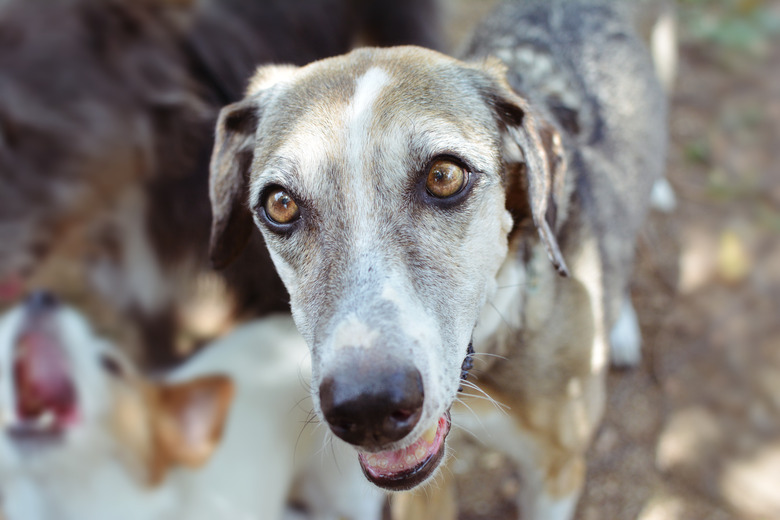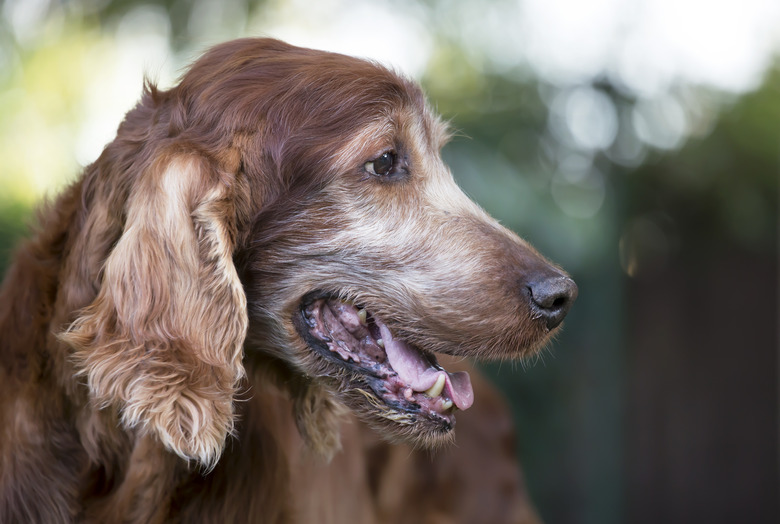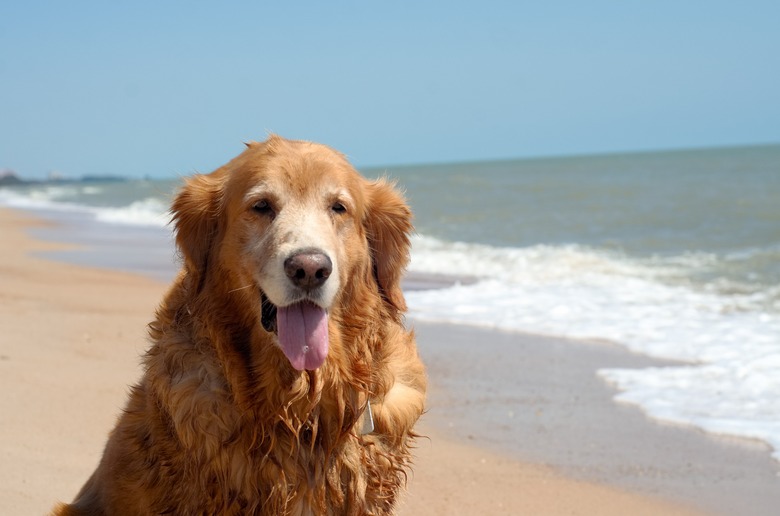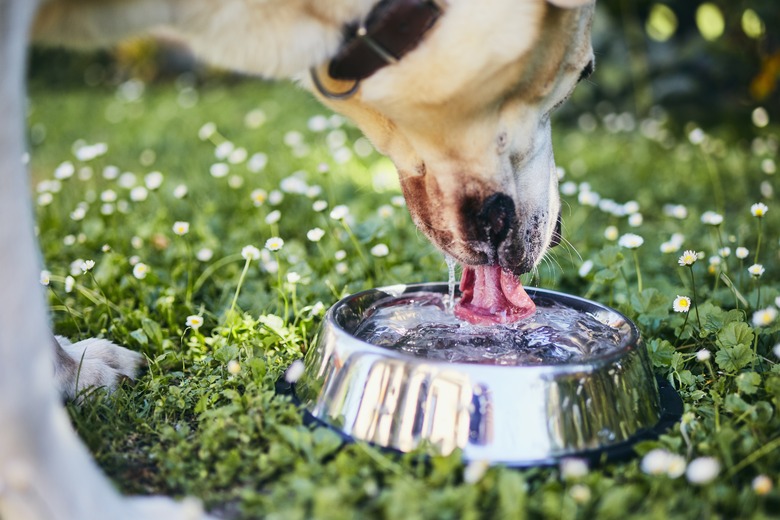Summer Care Tips For Senior Dogs
We may receive a commission on purchases made from links.
Hot sun, warm air, longer days, and more time spent outside all pretty much synonymous with the summertime. These details may make for a fun time, but for senior dogs, the heat and increased activity can make life a little tough. Of course, that can be true for any dog regardless of their age or bill of health, and it is absolutely possible for an aging dog to enjoy spending time with her family outside during the summer months.
Special considerations for senior dogs in summer
Special considerations for senior dogs in summer
Caring for a senior dog is not unlike caring for a younger dog, assuming your pet is in relatively good health. Even if your older dog is showing some of the tougher signs of aging, his care can be made easy and effective with a little bit of planning and by taking preventative measures.
According to the American Veterinary Medical Association, the most common issues geriatric pets face include arthritis, senility, cancer, and diseases of the heart, liver, and kidneys, to name a few. Some of these illnesses can be triggered or exacerbated by the increase in body temperature that comes with hot weather in the summer months, so taking those extra, important steps to keep your aging pet cool and comfortable in a shady area will give him his best shot at maintaining his physical and mental health.
Managing a senior dog's temperature on warm days
Managing a senior dog's temperature on warm days
Accounting for the heat is a precaution that should be taken with all dogs, and the ASPCA has a few things to look out for to keep your pet safe that ring true across the board, regardless of age. Easy access to water is an absolute must, as is providing a shady retreat, like a beach umbrella at the shore or a shady trail on a hike, if your dog seems to be overheating. (An overheated dog can usually be seen panting or drooling, and may have difficulty breathing or even collapse if attention isn't paid right away.)
If an outdoor trek is in store for your dog, be sure to take extra breaks to allow your senior dog to rest and recuperate along your walk or hike, especially if the dog has breathing issues or or is a flat-faced (brachycephalic) breed like a pug or bulldog, who already have issues inhaling air. Even if issues like stiff joints or fatigue aren't apparent during your outing, these discomforts can kick up once your dog returns home and stops moving, and can be painful if your dog pushes it a little too hard.
Chewy has some really convenient umbrella-type shades like the K&H Cot Canopy. This works for an indoor-outdoor elevated dog bed which would keep your dog out of the sand and damp grass.
Taking care of an older dog in the summer
Taking care of an older dog in the summer
There are a couple of things to keep in mind when caring for an older dog this summer: general health, and addressing specific concerns.
General care tips include basic measures that should be taken with any dog, but ring especially true for seniors, like not keeping your dog dog inside of a hot car or a parked car, making sure to supervise them in potentially dangerous situations, like around swimming pools or other bodies of open water, and in places where they could fall, like open windows or unsecured balconies. Taking your pet in for a late-spring or pre-summer check-up can maintain their overall health as well as keep you up to date on proactive treatments, like flea, tick, and heart worm preventative.
If your senior is affected by specific illnesses or diseases, you'll want to familiarize yourself with common symptoms of those issues, along with possible side effects of any medications that your dog is on. For example, some of the most common symptom of Cushing's disease, which usually affects dogs later in life according to the FDA, is hair loss, which could result in irritated or even sunburned skin if exposed to the sun for too long.
Keep your dog out of the sun
Keep your dog out of the sun
The best solution to this problem is to keep your dog out of the sun, especially in the early afternoon on hot days, but if your dog does find himself outside, Banfield recommends investing in some dog-friendly sunscreen. When searching for a sunscreen, look for waterproof formulas created specifically for canines as human-grade sunblock usually contains zinc oxide, which can be toxic to dogs when ingested. Sunblock should have an SPF of at least 15 that protects against UVA and UVB rays. Wearing booties can help protect your dog's paw pads from hot pavement.
Try Epi-Pet Sun Protector Skin Treatment Spray from Amazon. The sunscreen ingredients are the equivalent of 30 to 40 SPF in the sunscreen people would use, and contains no zinc oxide. Petkin's Doggy Wipes are a convenient alternative to spray. Each towelette is pre-moistened with a formula just for dogs that you can swipe over ears, nose, muzzle, and any pink areas of your dog's skin.
Provide plenty of drinking water
Provide plenty of drinking water
Another common ailment among senior dogs is diseases that affect the urinary tract, which can result in difficulty peeing for some dogs. If your dog has a kidney, liver, or urinary tract infection or disease, providing fresh water when it's hot out is absolutely crucial, so if you're planning for a long outing, be sure to pack a water bowl (collapsable bowls are available and make watering your dog on hikes easy) and plenty of water. Many dogs appreciate ice cubes in their water bowls on hot days, or frozen treats. If your dog really likes to be cool, try draping wet towels over him.
Using a larger watering system either at home or when you travel can ensure that you never inadvertently run out of cool water. The Alfie Collapsible Fabric Travel Dog Bowl holds 6.25 cups and works for both food or water. It won't collapse, even if your pet bumps the bowl. Many senior dogs can benefit from an elevated food and water tray, such as the Elevated Collapsible Travel Bowl from Frisco. It packs flat, and elevates 6 inches off the ground.
If you can plug in, try the Drinkwell Platinum Fountain. This 12-volt fountain provides fresh, free-flowing water instead of a stagnant bowl to encourage dogs to dive in. The fountain hold more than 1 gallon of water and constantly filters and aerates it. Out of nearly 1,000 reviews it has achieved nearly 5 stars and one household that purchased it said "it's one of the best thing that's ever happened to us"! It can't be overstated enough that continuous access to fresh drinking water goes a long way towards keeping dogs cool.
Finally, if your dog seems especially slowed down by summer heat, keep your dog cool by leaving him at home where he's comfortable and safe. Decreased appetite, difficulty breathing, favoring certain limbs over others, and a general tendency to sleep more are all listed by the AVMA as common symptoms among aging dogs, any of which can make a long outing or even extended time in the sun almost too much for them to bear.
In summary
In summary
In general, it's best to keep dogs, especially seniors, out of the sun whenever possible. Always provide plenty of fresh drinking water. If your older dog seems to be having trouble keeping up, or is currently living with a diagnosed disease that makes breathing or exerting energy harder on him, opting for a shorter walk in the cooler early morning or evening hours will reduce potential harm and can leave your pet feeling better in the long run. Take frequent breaks to let them rest in a shady spot when temperatures rise.
Always check with your veterinarian before changing your pet's diet, medication, or physical activity routines. This information is not a substitute for a vet's opinion.



